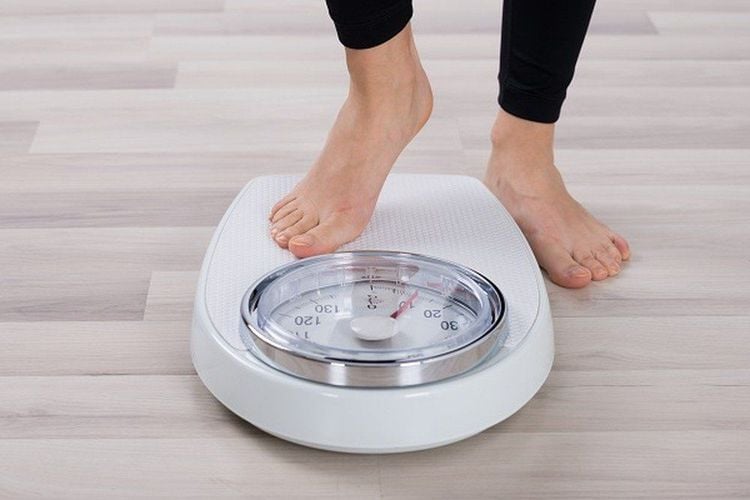This is an automatically translated article.
For many mothers, breastfeeding is an exciting time, helping to bring feelings of relaxation and joy. However, if you have to work more, many mothers will ask the question: When to stop breastfeeding? How long should breastfeeding last?1. What is prolonged breastfeeding?
The term “prolonged breastfeeding” has a different meaning depending on the ethnicity, religion and geographical area in which the child and family live.In some cultures it is perfectly normal to breastfeed a baby during the first year of life, but after that time most mothers will wean their babies. According to statistics, about 36% of babies are still breastfeeding at 12 months, while only about 15% of babies are still breastfeeding at 18 months. Many people think that breastfeeding beyond the recommended length of time (i.e. 12 months of age) counts as extended breastfeeding.
2. How long should breastfeeding last?
Most experts recommend breastfeeding for a minimum of 12 months postpartum, and some even want to increase the recommended time to 18 months. Here's what major health-related organizations around the world say about prolonged breastfeeding:The American Academy of Pediatrics (AAP) recommends that babies be breastfed completely in the first 6 months, continuing to extend to at least 1 year. After that, mothers should breastfeed on the condition that "mother and child both want". The World Health Organization (WHO) also recommends exclusive breastfeeding for the first 6 months, and then continuing to breastfeed “until 2 years of age and beyond”. Like the AAP and WHO, the American Academy of Family Physicians (AAFP) recommends continued breastfeeding for at least 1 year and states that the health of mothers and babies is optimal "when breastfeeding is continued." breastfed for at least 2 years”.

Hầu hết các chuyên gia đều khuyến khích nuôi con bằng sữa mẹ trong tối thiểu 12 tháng sau sinh
3. Pros and cons of prolonged breastfeeding
3.1. Advantages of prolonged breastfeeding Although at the present time, children have received adequate nutrition for both physical and intellectual development from weaning foods, but breast milk is still the main source of breast milk. provide energy, growth hormone, immune system, vitamins and enzymes are very valuable for baby. Studies show that breastfed toddlers are less likely to get sick than their weaned peers. When a baby is sick, breast milk may be the only thing a baby's immature digestive system can absorb. This will help your baby always maintain enough water and nutrients as well as strengthen the immune system to fight diseases. Breastfeeding is also good for a woman's health. When compared with women who never breastfed, breast-feeding women had significantly lower rates of diabetes, cardiovascular disease, and high blood pressure. Once your baby has begun to become aware of what's going on around her, breastfeeding can be an important source of reassurance and emotional support. The strong connection a baby feels from his mother while breastfeeding promotes independence, not making him overly dependent or weak later in life. Sometimes people think that weaning early will help babies develop a sense of self-worth and independence, says Kathleen Huggins, author of The Breastfeeding Mother. But forcing a child to stop breastfeeding before he or she is ready to grow does not necessarily produce a more confident child, and even makes him weak and dependent on his parents. In the case of a baby and family traveling and spending the night in unfamiliar places, the comfort and familiarity of breastfeeding can be the best way to allay fears and make babies feel safe. more attentive. Maintaining breastfeeding can help women delay their period for a year or more, depending on how long the baby is nursing. This can be an advantage for many women who have more prominent menstrual symptoms such as cramps or bloating. However, it should be noted, breastfeeding is not an effective form of family planning, especially after babies start eating solids and suckling less. Continuing to breastfeed can make it easier for mothers to control their weight. Some research shows that breastfeeding combined with a healthy diet and regular exercise can help mothers lose weight and stay fit for years to come. Breastfeeding until your baby is ready for weaning can help your baby feel more natural and less sudden.
Tiếp tục cho trẻ bú có thể giúp các bà mẹ dễ dàng kiểm soát cân nặng của mình
4. How to make prolonged breastfeeding easy
If you're annoyed by rude comments or looks while breastfeeding in public, do it at home before going out. Some mothers prefer to breastfeed at certain times of the day, such as in the morning when they wake up or at night before going to bed, and bottle-feed their babies with meals and snacks.And if you don't care what people think or say, have some answers ready when someone asks questions like “Does your grandchild still need to breastfeed?”. However, sometimes a simple answer like “Yes” will be the best conversation blocker in case you don't want to talk about the issue.
If your baby seems to be suckling out of boredom or just to get your attention, distract the baby in other ways. Toddlers are eager to explore the world and need stimulation to promote their rapid development.
Teach your baby a "code" that only the mother and child know and use when the baby wants to breastfeed so that when in public no one notices.
Learn to take care of yourself. Adopt a diet that includes plenty of fresh fruits and vegetables, protein, whole grains, and calcium-rich foods. Also to stay hydrated drink a glass of water each time you breastfeed. And if you're not sure you're getting all of the nutrients you need, talk to your doctor or dietitian about it.
Another thing to keep in mind is that when breastfeeding after the first year, make sure that in addition to breast milk, the baby also needs to provide other complementary foods to balance nutrition to help the baby continue to develop. If your baby is going through a period of picky eaters, don't worry he'll still get a lot of valuable nutrients from breast milk.
If pregnant mothers wish to continue breastfeeding, the issue of reduced milk supply should be taken into account when hormone levels change. They may produce less milk as the body begins to redirect energy and nutrients to the growing fetus, and the taste of the milk may also change. There have also been many successful mothers in nursing babies and toddlers during pregnancy. This will take a lot of time and energy, so it requires careful preparation and ensuring adequate supply of nutrients.

Các mẹ cho con bú kéo dài nên áp dụng một chế độ ăn uống bao gồm nhiều trái cây tươi và rau củ, protein, ngũ cốc nguyên hạt và thực phẩm giàu Canxi
Besides breastfeeding, in this stage, babies are also getting used to solid foods. Therefore, parents should supplement their children with supporting products containing lysine, essential micro-minerals and vitamins such as zinc, chromium, selenium, B vitamins to help fully meet the nutritional needs of children. At the same time, these essential vitamins also support digestion, enhance nutrient absorption, help improve anorexia, and help children eat well. Parents can simultaneously apply dietary supplements and functional foods derived from nature for easy absorption. Do not forget to regularly visit the website vimec.com to update useful baby care information.
Reference sources: babycenter.com, healthline.com, brownskinmama.com













